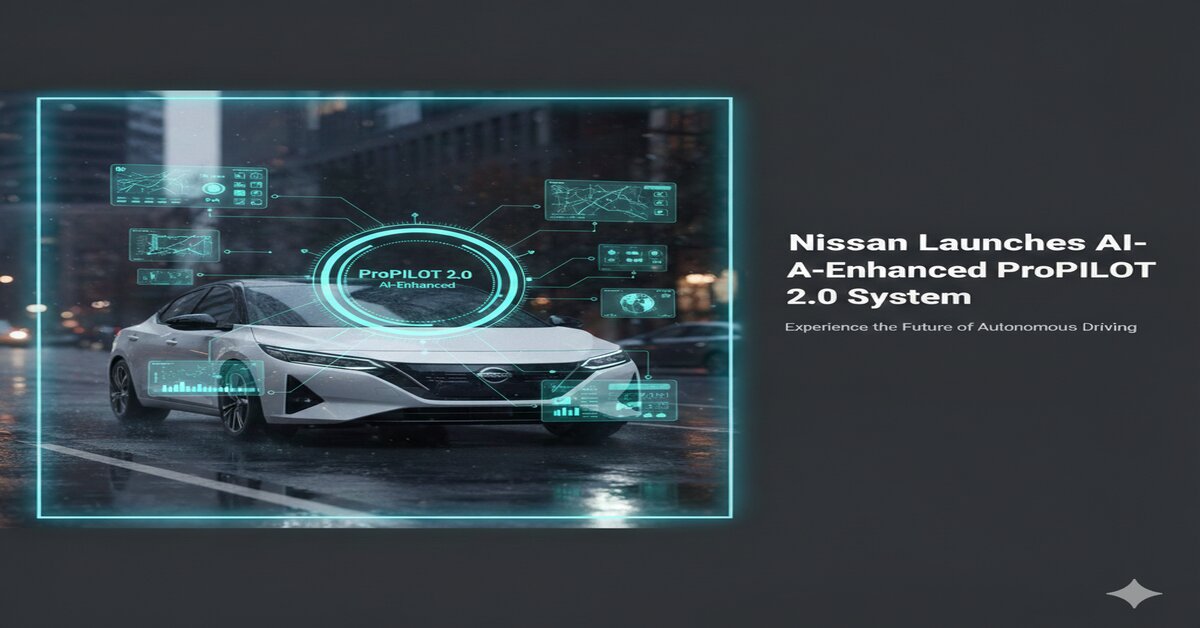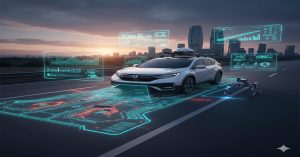Nissan is redefining the future of driver assistance with the unveiling of its next-generation ProPILOT system, a breakthrough that combines artificial intelligence with advanced sensor technology to handle the complexities of urban driving. Scheduled for launch in Japan in fiscal year 2027, the system represents a major leap forward in making city travel safer, smoother, and more intuitive for everyday drivers.
The new ProPILOT platform builds on the success of Nissan’s previous driver-assist systems but goes far beyond simple lane-keeping or adaptive cruise control. In recent public demonstrations in the heart of Tokyo, prototype vehicles based on the Nissan Ariya electric SUV showcased their ability to navigate the city’s busiest streets. These real-world tests demonstrated the system’s capability to manage heavy traffic, anticipate pedestrian movements, and handle complicated intersections—all while meeting SAE Level 2 standards, meaning the driver remains engaged and responsible but benefits from significant assistance.
Central to this leap in capability is the integration of Wayve’s cutting-edge AI Driver technology. This “embodied AI” processes live video data from the car’s cameras and learns to interpret its surroundings much like a human driver. Instead of simply reacting to obstacles, the AI predicts how the environment will change—whether a cyclist might veer into the lane or traffic ahead is likely to slow down—and adjusts accordingly. The result is a smoother, more natural driving experience that feels less robotic and more like a skilled chauffeur navigating rush-hour traffic.
Supporting the AI is Nissan’s advanced Ground Truth Perception system, which pairs camera data with a roof-mounted LiDAR unit capable of detecting objects at long range, even in poor lighting or adverse weather. Together with 11 cameras providing 360-degree visibility and five radars offering robust performance in rain or fog, the system ensures that the vehicle has a clear, comprehensive view of its surroundings. This multilayered sensor suite reduces blind spots and enhances safety in both city and highway environments.
Eiichi Akashi, Nissan’s Chief Technology Officer, highlighted the significance of the new technology during its debut. “Our current ProPILOT system has been very well received, but this next-generation version delivers a step-change in capability,” Akashi said. “It provides the confidence of having an expert driver at the wheel, capable of handling the most challenging traffic scenarios while keeping safety at the forefront.”
Nissan’s move reflects its ambition to lead in the fast-evolving field of intelligent mobility. By collaborating with AI pioneers like Wayve, the automaker is not only enhancing its existing ProPILOT technology but also paving the way for a future where advanced driver-assistance features become accessible to a wider audience. The system’s Japan-first rollout could eventually expand globally as demand for safer, smarter electric vehicles continues to grow.
With these advancements, Nissan is signaling a pragmatic approach to autonomous driving—prioritizing reliability and adaptability over promises of full autonomy. For drivers, this could mean less stress, more confidence, and safer commutes in the cities of tomorrow.







